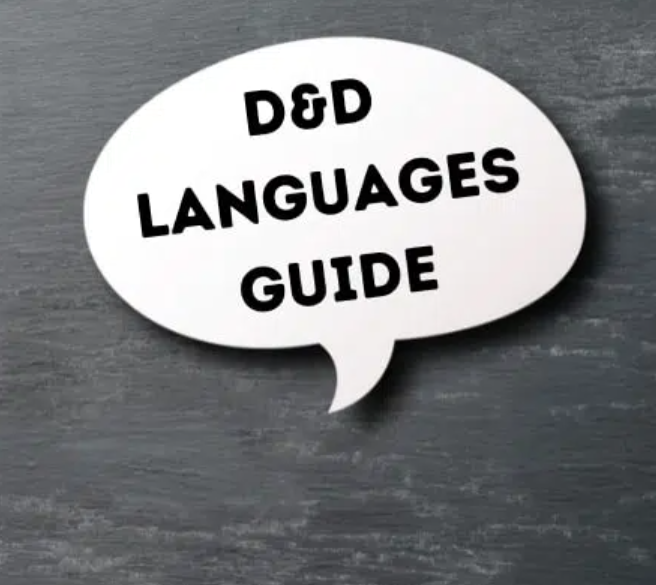From our familiarity with DND Languages, we can explain many things about them. You should read this post if you wish to obtain answers to all of these frequently asked questions and a list of lists with their scripts in order to play your dungeons and dragons roleplaying game with joy and improve your communication skills. You’ll also fall in love with this website if you’re anything like me.
You can choose from one or more different languages depending on your background, while your race determines the languages your character can speak by default. Be sure to write down your dialects on the character sheet. Choose your language from the Standard Languages table, or use a widely used language.
Alternatively, a secret language, such as thieves’ cant or druid’s tongue, can be used with the permission of the GM, such as an Exotic Languages table. Some of these languages are linguistic families, which means they have a wide variety of dialects within them as well.
There are many dialects of Dungeons & Dragons used in promotional language to convey some of the elemental planes in a monster. This is what is referred to as the core family languages of the game. We have developed a new type of information for people who speak different dialects of the same language and want to converse easily.
From the Standard Languages table, you can choose all of your languages or one that you will use throughout your campaign. You can instead choose a speech or a secret language, such as thieves’ cant or druid’s tongue, with the approval of your GM. Linguistic families can include languages with numerous dialects. Primordial languages include those of the four elemental planes, such as Auran, Aquan, Ignan, and Terran. Nevertheless, people who speak different dialects of the same language may be able to converse with one another.
It is also common to encounter standard languages because they are so widely used that players should not be surprised. The possibilities in human groups or any other group with varying races are a language of choice. It should be relatively easy to learn or understand any of these languages if the player isn’t playing in a customized setting or campaign. In the 5th edition of Dungeons & Dragons, these are the most commonly used languages. In a D&D game, you can refer to these speeches and scripts on your character sheet or by mentioning them in your campaign. Check them out now rather than waiting until the last minute.
Learning Guide
To answer this, I’ll use the fifth edition rules, which are the most commonly used these days. It’s also the version I’ve played most recently. The majority of your languages will be given to you when you create your character. Your character’s race will automatically determine which languages they know when they begin the game; elves, for example, will be familiar with Elvish. Other languages may be available depending on the background you choose.
Classes may sometimes offer additional language opportunities. Druids, for example, learn Druidic, a language that was originally only available to Druids. Thieves’ Cant, a language made up of words and dialects from other languages, is also used by rogues. There’s a trick that you can use to learn as many languages as possible. The program is called Linguist, and it allows you to learn three new languages.
What are the best D&D languages?
Before starting to create a character, every player asks this question. A language may be used to build bridges or destroy them, to reveal or bury truths. In a game like Dungeons & Dragons, where social interactions can make or break a character, language is an essential tool. Since Common is the most commonly used language in the game, let’s examine the next five most helpful ones.


